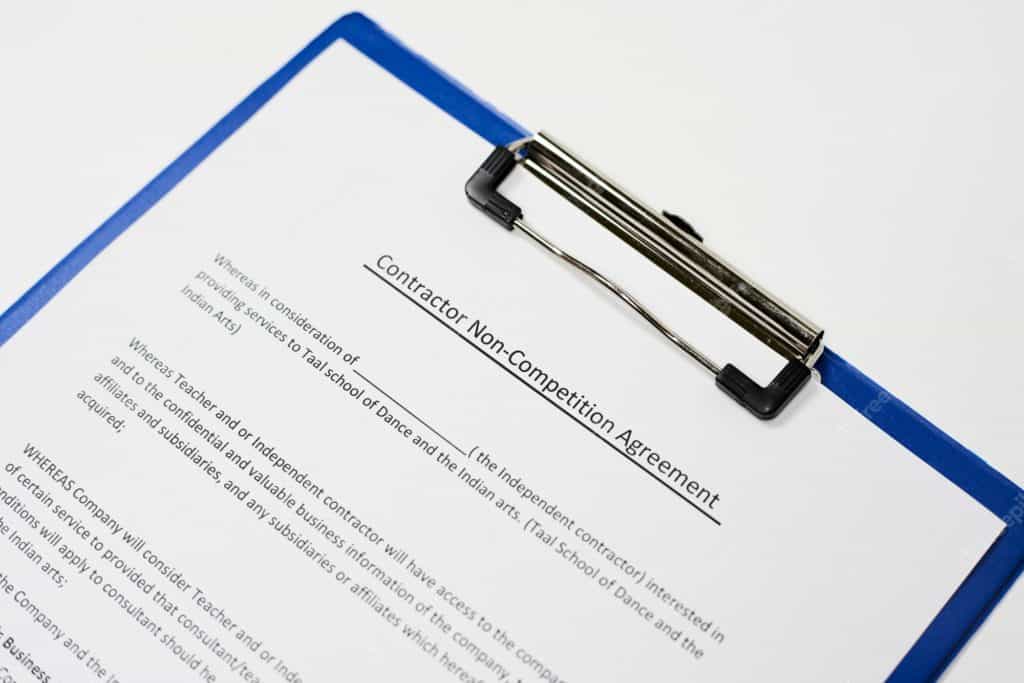
As an independent consultant, you have the freedom to work on your own terms, set your own schedule, and be your own boss. But with that freedom comes responsibility, including the need to understand the ins and outs of independent contractor agreements.
In this guide, we’ll take you through important aspects you need to know about independent contractor consulting agreements, from key elements to common clauses, legal considerations to negotiating tips.
(Note: This article was originally published on June 8, 2023, but was inadvertently deleted.)
Independent Consulting: Your role, the benefits and challenges
“My job is to help my clients ask better questions. My mentor taught me, `Ask a better question, get a better answer.”
– Richie Norton
Independent consulting is the practice of providing expertise and services to clients on a contract basis. As an independent consultant, you are self-employed and you work with clients on a project-by-project or other basis, rather than being a full-time employee of a single company. This gives you the flexibility to choose your own clients, set your own schedule, and work from anywhere in the world.
However, being an independent consultant also comes with its own set of challenges. You are responsible for finding your own clients, managing your own finances, and ensuring that your work meets the needs and expectations of your clients. One of the most important aspects of being an independent consultant is understanding the independent contractor consulting agreement.
Understanding Independent Contractor Agreements
“A verbal contract isn’t worth the paper it’s written on.”
Samuel Goldwyn
An independent contractor agreement or contract is a legal document that outlines the terms and conditions of the relationship between an independent consultant and their client. This agreement is essential to protect your rights as an independent contractor. It also ensures that both you and your client are clear on the scope of the work, payment terms, and other important details.
See this excellent article “43 Contract Management Statistics Ahead of 2024” on the ContractSafe website. While most of the statistics are most relevant for large organizations, these entities may be your clients.
There are several key elements that should be included in any independent contractor consulting agreement:
Scope of Work
The scope of work is a detailed description of the services that you will be providing to your client. This should include a clear outline of your responsibilities, deadlines, and any other requirements for completing the project.
Payment Terms
“Beware of little expenses: a small leak will sink a great ship.”
– Benjamin Franklin
Your independent contractor agreement should clearly outline the payment terms for the project. It should include the total amount you will be paid, the payment schedule, and any other relevant details. This can help avoid any confusion or misunderstandings about payment, and ensure that you are fairly compensated for your work.
Confidentiality and Non-Disclosure
If you will be working with sensitive or proprietary information, your independent contractor agreement should include provisions for confidentiality and non-disclosure. This can help protect your client’s intellectual property and ensure that you do not share confidential information with third parties.
Termination and Cancellation
Your independent contractor agreement should also outline the circumstances under which either party can terminate or cancel the agreement. This can help protect you in case of unexpected circumstances, such as if your client decides to cancel the project or if you are unable to complete the work for any reason.
Types of Consulting Agreements
You may encounter several different types of consulting agreements as an independent consultant, each with their own unique features and requirements. Some common types of consulting agreements include:
Fixed-Term Contracts
A fixed-term contract is a consulting agreement that specifies a set period of time for the project to be completed. This can be useful for projects with a clear start and end date, and can help ensure that everyone involved is clear on the timeline for the work.
Retainer Agreements
A retainer agreement is a consulting agreement in which the client pays a set fee to retain your services on an ongoing basis. This can be a great option if you have a long-term relationship with a client and want to ensure a steady stream of income.
Hourly or Project-Based Agreements
Hourly or project-based consulting agreements are agreements in which you are paid based on the number of hours you work or the completion of specific project milestones. This can be a good option for projects with a less clear timeline or for clients who only need occasional consulting services.
Common Terms and Clauses in Consulting Agreements
There are several common terms and clauses that you should be aware of when negotiating an independent contractor consulting agreement. These include:
Indemnification
Indemnification is a clause that protects you from liability if your work results in a lawsuit or other legal action. This can be an important protection for independent consultants who may not have the same legal resources as larger companies.
Intellectual Property
Intellectual property clauses can help protect your client’s intellectual property, as well as ensure that you retain ownership of any work you create as an independent consultant.
Non-Compete and Non-Solicitation
Non-compete and non-solicitation clauses can restrict your ability to work with other clients or compete with your current client’s business. These clauses can be controversial, so it’s important to understand them fully before agreeing to them.
Negotiating a Consulting Agreement
Negotiating an independent contractor consulting agreement can be a complex process, but it’s important to ensure that the final agreement is fair and protects your interests as an independent consultant. Some tips for negotiating a consulting agreement include:
Know Your Worth
Before entering into a consulting agreement, it’s important to have a clear idea of your market value and the rates that other consultants in your field are charging. This can help you negotiate fair payment terms and ensure that you are being compensated appropriately for your work.
Clarify the Scope of Work
The scope of work is one of the most important elements of any consulting agreement, so it’s important to ensure that both you and your client are clear on what is expected. This can help avoid misunderstandings or disputes down the line.
Consider Legal Advice
If you are unsure about any aspect of the consulting agreement, it’s always a good idea to seek legal advice. An experienced attorney can help you understand your rights and obligations under the agreement, as well as identify any potential pitfalls or areas of concern.
How to find a lawyer for an independent consulting business
Finding a lawyer for your independent consulting business is an important step to ensure legal compliance and protect your interests. Here are some steps you can take to find a lawyer who specializes in business law and can assist you with your consulting business:
1. Determine your legal needs:
Before seeking a lawyer, identify the specific areas of law that are relevant to your consulting business. This might include contract law, intellectual property, tax law, employment law, or other areas. Understanding your legal needs will help you find a lawyer with the appropriate expertise.
2. Seek recommendations:
Start by asking for recommendations from other business owners or professionals in your network who have used lawyers for their own businesses. Personal referrals can provide valuable insights and help you find a lawyer who has experience working with consultants or in your industry.
3. Consult online legal directories:
Online legal directories can be a useful resource to find lawyers in your area. Websites like Avvo, Martindale-Hubbell, the American Bar Association’s (ABA)directory, or Upcounsel allow you to search for lawyers based on their practice areas and location. The ABA also has advice on how to find a lawyer.
4. Use professional networks:
Take advantage of professional networks, such as LinkedIn, to search for lawyers specializing in business law or who have experience working with consultants. Join industry groups or associations in your field so you can connect with professionals who may have legal expertise or recommendations.
5. Research and evaluate potential lawyers:
Once you have a list of potential lawyers, check their backgrounds, experience, and qualifications. Look for reviews or testimonials from their clients. Verify their credentials and check if they are licensed and in good standing with the local bar association.
6. Schedule consultations with lawyers:
Reach out to the lawyers on your list to set up initial consultations. Many lawyers offer a free or reduced-cost initial meeting to discuss your legal needs and assess whether they are a good fit for your business. Use this opportunity to ask questions, discuss their experience, and gauge their understanding of your industry.
7. Consider the specialization and experience:
Look for lawyers who specialize in business law or have significant experience working with consultants or small businesses. They will be more familiar with the unique legal challenges and considerations that arise in the consulting industry.
8. Evaluate communication and rapport:
During the consultation, assess how well you communicate with the lawyer and whether they understand your business goals. It’s important to have open and effective communication with your lawyer, as you will be working closely together on legal matters.
9. Discuss fees and billing:
Inquire about the lawyer’s fee structure and billing practices during the consultation. Some lawyers charge hourly rates, while others offer flat fees or retainer arrangements. Ensure you have a clear understanding of the costs involved and how billing will be handled.
10. Review and finalize engagement with your lawyer:
Once you have selected a lawyer, review and finalize the engagement by signing an engagement letter or retainer agreement. This document outlines the scope of work, fees, and other relevant terms of your attorney-client relationship.
The information provided here is general guidance. It’s important to consult with a qualified lawyer to address your specific legal needs and requirements.
Legal Considerations for Consulting Agreements

There are several legal considerations that you should be aware of when entering into an independent contractor consulting agreement. These include:
Employment Status
It’s important to understand your employment status as an independent consultant, as this can have implications for taxes, benefits, and other legal requirements.
Worker Classification
Worker classification is another important legal consideration, as misclassifying your workers can result in fines and legal penalties.
Liability and Insurance
As an independent consultant, you may be liable for any damages or losses that result from your work. It’s important to understand your liability and insurance requirements, and ensure that you have appropriate coverage in place.
For more information on what insurance you should consider see the What about insurance? section of the Get Started page.
Managing the Consulting Relationship
Once you have entered into a consulting agreement, it’s important to manage the relationship effectively to ensure a successful outcome. Some tips for managing the consulting relationship include:
Communicate Effectively
Effective communication is key to any successful consulting relationship. Make sure to keep your client informed of your progress, ask for feedback and clarification when needed, and be responsive to any questions or concerns they may have.
Set Expectations
Setting clear expectations from the outset can help avoid misunderstandings or disputes down the line. Make sure your client is aware of your schedule, availability, and any other relevant details.
Be Professional
As an independent consultant, you are representing yourself and your business. It’s important to be professional, courteous, and respectful at all times, and to maintain a positive working relationship with your client.
Alternatives to Consulting Agreements
While consulting agreements are a common arrangement for independent consultants, there are several alternative models that you may want to consider. These include:
Joint Ventures
A joint venture is a partnership between two or more businesses to work on a specific project or objective. This can be a good option if you have complementary skills or resources that can be combined to achieve a common goal.
Freelance Platforms
Freelance platforms like Upwork and Freelancer can be a good way to find clients and projects as an independent consultant. These platforms typically handle the administrative and legal aspects of the work, allowing you to focus on delivering high-quality services to your clients.
Conclusion: Why Understanding Consulting Agreements is Crucial for Independent Consultants
As an independent consultant, understanding the independent contractor consulting agreement is crucial to protecting your rights and ensuring a successful outcome for your projects. By knowing the key elements of a consulting agreement, understanding common terms and clauses, and negotiating effectively, you can build strong relationships with your clients and achieve your business goals as an independent consultant.
If you’re an independent consultant looking to take your business to the next level, start by understanding the ins and outs of consulting agreements. With the right knowledge and expertise, you can build a successful and sustainable business as an independent consultant.
